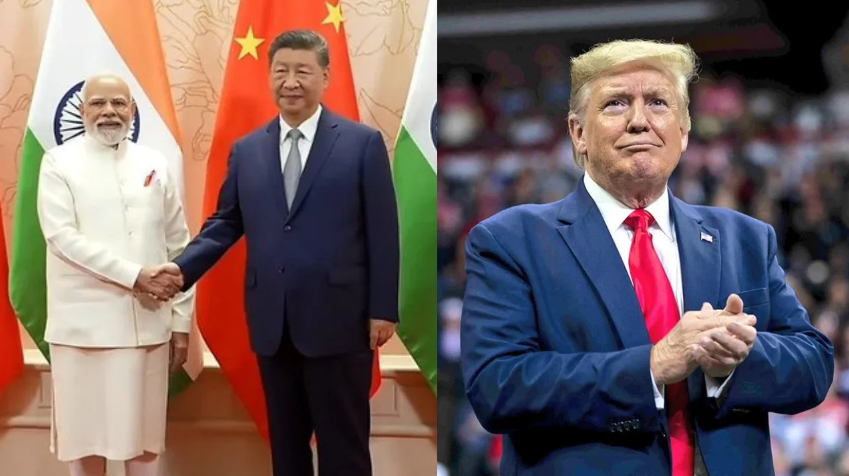Tianjin, China: Indian Prime Minister Narendra Modi and Chinese President Xi Jinping held a landmark bilateral meeting on the sidelines of the SCO (Shanghai Cooperation Organization) Summit in Tianjin, drawing global attention amid U.S.-imposed trade tariffs. The leaders discussed border security, international trade challenges, and economic cooperation, signaling that both countries remain committed to safeguarding national interests against external pressures. Experts note the meeting sent a subtle message to the U.S., emphasizing that India and China will not yield to global economic coercion.
Ahead of the Shanghai Cooperation Organization (SCO) summit in China, Indian Prime Minister Narendra Modi held a bilateral meeting with Chinese President Xi Jinping.
This meeting between the two leaders is considered extremely important. They engaged in detailed discussions on… pic.twitter.com/ODfno1gGuX
— Bharat Spectrum (@BharatSpectrum) August 31, 2025
Xi Jinping described the meeting as a pleasure, highlighting the importance of India and China working together on the world stage. He expressed a desire to strengthen bilateral ties and resolve disputes through dialogue while respecting mutual interests. Prime Minister Modi highlighted improved peace and stability along the border since the Kazan summit last year and confirmed that both countries had agreed to fully restore air services. Modi added that closer India-China relations would benefit the combined population of 2.8 billion people.
UPSC-Oriented SWOT Analysis: Modi-Xi Bilateral Meeting at SCO Summit 2025 – Geopolitical Reset Amid US Tariff Onslaught, BRICS Fortification, and India's Multipolar Pivot
Prelims GS Paper 1: Current Affairs, International Relations, Economic Geography, and Modern History Focus… pic.twitter.com/jagY9S0Nyy
— Raj Malhotra (@Rajmalhotrachd) August 31, 2025
This marked the first high-level meeting since the Galwan Valley clashes, which had strained relations. The leaders focused on ensuring border peace, enhancing economic cooperation, and boosting collaboration in trade and science & technology. Analysts view the summit as ushering in a new chapter in India-China relations, strategically significant amid ongoing U.S.-China trade tensions.






